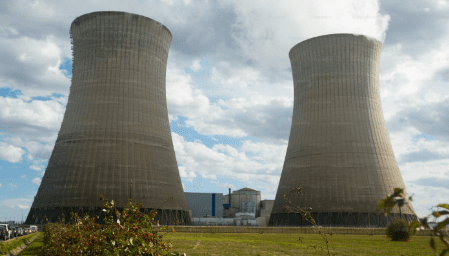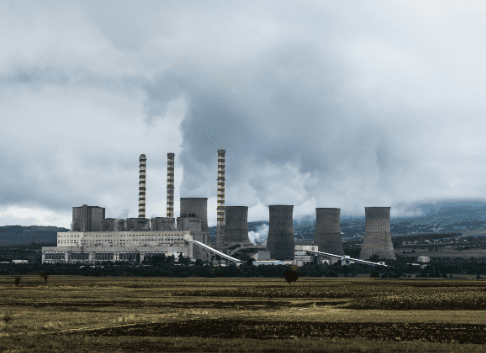For the first time in history, the United Kingdom has shut its last coal-fired power plant. The glory of such an end marks the beginning of an era that dates back to the Industrial Revolution. This change would throw light on how much Britain has journeyed with cleaner energy. What does it actually mean for Britain and the world? Let’s have a closer look at the history of coal in the U.K.

Coal has been one of the golden-era components of Britain’s history. It is the pre-cursor for energy in Britain, and without which factories would have mushroomed, trains puffed along, and homes heated using this black rock. For generations, coal has been the economic backbone of the U.K., providing jobs and power to the nation.
However, over time, people realized that coal was harmful. It emitted a lot of smoke and pollution, affecting the environment and also impacting the lives of human beings. Real issues of climate change and the need for pure sources of energy triggered a tremendous change in many nations over time in the way electricity has been produced.
Last Stand: Ratcliffe Power Plant
The last coal-fired power plant in the UK was Ratcliffe-on-Soar, located in Nottinghamshire. The power plant has been in service since 1968 and, for many years, was one of the country’s biggest coal-fired power stations. It produced electricity for millions of homes and businesses.
However, things changed when renewable sources of energy, such as wind and solar, came into play accompanied by growing concerns about the negative impacts of climate change. The U.K. came under pressure to wave goodbye to coal. With the Ratcliffe plant set for closure, the U.K. will be the first G-7 country within the group of industrialized nations to phase out the use of coal entirely as a source of power generation.
Why is this a big deal?
Shutting down the last coal-fired power plant has a lot of important reasons:
Environmental Advantages: Coal-fired plants are the biggest emitters and contributors to greenhouse gas production. Ratcliffe’s shutdown is a step forward as committed by the UK in reducing its carbon footprint, improving the air, thereby combating climate change, and protecting the environment for generations.
Healthier Communities: Less Coal Translates to Cleaner Air. In many parts of the United States and other countries, coal plant locations are often subject to health issues from some inhabitants caused by pollutants that leads to asthma and other forms of respiratory problems. The UK is working towards healthier communities by moving away from coal.
Taking the Lead by Example. The following facts: Britain shut its last coal power plant and plans to build the largest solar park in the world demonstrate it is real that countries can be changed towards cleaner sources of energy. Further, more countries need to learn from the UK’s experience and modify their reliance on fossil fuels to a dependence on renewable energy.
The Rise of Renewable Energy
It’s also worth noting that, while closing the last coal-fired plant in the U.K., the country is not shutting off the lights but turning on renewable energy. Investment in wind power and solar power and hydroelectric power is significant in the U.K.
For instance, wind energy has gained very well. UK boasts of some of the world’s largest offshore wind farms. These farms harness electricity from the wind without emitting harmful substances into the atmosphere. Another on-growing one is solar energy, with many homes and businesses actually putting up their own solar panels to power themselves.
This is not only saving the planet but, in addition, also generating new jobs in the renewable energy sectors. It is paving its path to a sustainable future for the increasing number of people working in the renewable energy sectors in the U.K.
Future Challenges
While closing the Ratcliffe plant is a step in the right direction, there is still many hurdles to get over. Transitioning to renewable energy is not a task that can easily be managed overnight. Days without wind and days without sun will cause complete peaks and troughs in supply for energy. This means the U.K. needs to put money into storage solutions and also improve its grid to make sure everybody has electricity.
Above all, the government must extend necessary support to those workers whose jobs will be lost because of closing coal plants. Training and resources need to be made available to enable them to find new green jobs in renewable energy sectors.

A Clean Future Without Coal
Coal indeed marks the end of a nation, symbolizing a cleaner, greener future for the U.K. As the last boilers at the Ratcliffe plant cool to the touch, Britain will be geared up to harness the power of wind, sun, and water.
This shift is not just about energy; it’s much more about the protection of our planet and to ensure that our future generations are protected by good ways of life. Thus, with a lead in such renewable energy, the U.K. encourages other nations to follow her example and also make similar commitments.








